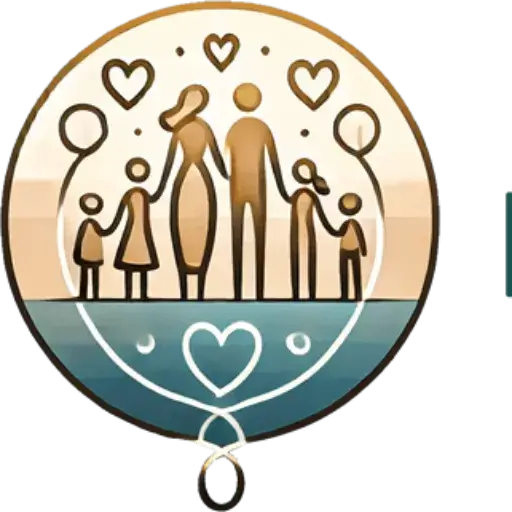Family Counselling Therapy for Bipolar Disorder
Family Counseling Therapy for bipolar disorder can be an essential resource for us as we work through the challenges that come with this condition. It fosters open communication and helps us understand the disorder’s impact on our relationships. We can learn effective coping strategies and develop resilience together. By engaging in therapies like family systems therapy or cognitive-behavioral therapy, we strengthen our connections and support each other better. Our therapists guide this journey, helping us navigate the complexities as a united front. There’s so much more to explore about how we can grow stronger as a family in these challenging times.

About Family Counselling Therapy
Family counselling therapy offers a supportive space where we can work together to understand and navigate the challenges of living with bipolar disorder. In family therapy, we engage with a mental health professional who helps us explore our family dynamics and identify areas of improvement. This process provides emotional support in families, enabling us to express our feelings and concerns in a safe environment.
One of the key benefits of family counselling therapy is the development of communication skills. Through communication skills therapy, we learn how to better articulate our thoughts and emotions, reducing misunderstandings that can lead to conflict. Additionally, we gain tools for family conflict management, fostering healthier relationships.
Therapeutic counselling encourages us to address underlying issues that may affect our family mental health care. It also offers essential support for parents, helping them understand their role in managing bipolar disorder within the family. By participating in this process together, we build a stronger foundation of empathy and understanding, ultimately enhancing our collective resilience. In doing so, we create a nurturing environment where everyone can thrive, despite the challenges that bipolar disorder may present.
Understanding Bipolar Disorder in the Family Context
Understanding bipolar disorder in our family context requires us to recognize how its symptoms can ripple through our relationships, affecting each of us in unique ways. The emotional dysregulation that often accompanies bipolar disorder can lead to misunderstandings and strain our relationship dynamics. Through family therapy sessions, we can explore these challenges together, fostering an environment of support and empathy.
Psychoeducation plays an essential role in our journey. By learning about bipolar disorder treatment options and the various coping strategies available, we can equip ourselves with the knowledge needed to navigate this condition. This understanding helps us improve our family mental health and enhances our communication.
Engaging in family communication therapy can provide us with tools to express our feelings and concerns openly. It allows us to address conflicts proactively rather than reactively. Additionally, during times of crisis, crisis intervention therapy can offer immediate support, ensuring we have a plan in place.
Ultimately, by prioritizing mental health support and working together, we can cultivate resilience and strengthen our bonds as a family. We’re not alone in this journey, and together, we can foster a healthier, more supportive environment for everyone involved.

Marriage and Family Therapy for Bipolar Disorder
Maneuvering the complexities of bipolar disorder within our marriages and families can be challenging, but marriage and family therapy offers us a valuable opportunity to enhance our relationships and foster healing. By working with a family therapist, we can explore the unique dynamics that bipolar disorder brings into our lives. This form of psychotherapy for bipolar disorder focuses on communication, emotional wellness, and understanding each other’s struggles.
In therapy, a relationship counsellor helps us navigate the emotional highs and lows associated with mood disorders, equipping us with tools for conflict resolution in families. We can learn to express our feelings more effectively and develop strategies for supporting one another during difficult times. Parental guidance is particularly essential for families with children, as it helps us model healthy coping mechanisms and emotional regulation.
Family counselling services provide a safe space for all of us to voice our concerns and aspirations. By engaging in marriage and family therapy, we can not only better understand bipolar disorder but also strengthen our bonds, fostering resilience and harmony in our relationships. Together, we can create a supportive environment that promotes healing and growth for everyone involved.
Cognitive-Behavioral Therapy (CBT) in Family Counseling
Building on the foundation of marriage and family therapy, Cognitive-Behavioral Therapy (CBT) offers valuable strategies for families coping with bipolar disorder by focusing on altering negative thought patterns and behaviors that can impact our relationships. This approach helps us identify unhelpful beliefs and replace them with healthier, more constructive thoughts. By employing family therapy techniques, we can foster a supportive environment that encourages open communication and understanding.
As we explore CBT, we can develop effective parenting strategies that not only support the individual with bipolar disorder but also enhance family emotional well-being. Utilizing mental health therapy within our family support programs allows us to learn coping mechanisms that strengthen our emotional resilience.
Moreover, incorporating trauma-informed therapy guarantees that we’re sensitive to the histories of all family members, promoting healing and growth. By working together with an emotional resilience specialist, we can build a foundation of trust and connection that is essential for maneuvering the challenges of bipolar disorder. Ultimately, CBT empowers us to create healthier family dynamics while providing the tools necessary for maintaining emotional balance and stability.
Family Systems Therapy for Bipolar Disorder
Family Systems Therapy offers us a holistic approach to addressing bipolar disorder by focusing on the interconnected dynamics within our family, helping each member understand their role in promoting emotional health. This form of therapy emphasizes family relationship building, creating a supportive environment where we can all share our feelings and experiences.
As we engage in family systems therapy, we learn to recognize how anxiety in families and depression in families can affect everyone’s mental health. By fostering open communication, we can tackle couple conflict resolution and strengthen our bonds. This process not only aids in individual healing but also promotes overall family healing.
Through emotional therapy, we gain insight into our patterns and behaviors, enhancing our mental health awareness. Each session provides us with tools to support one another, ensuring that no one feels isolated in their struggles.
In the context of bipolar disorder, family systems therapy encourages us to work together, allowing for a deeper understanding of the challenges we face. By prioritizing our collective well-being, we can foster resilience and create a nurturing space for growth and healing.

Parent-Child Therapy: Supporting Children in Bipolar Families
When we navigate the complexities of bipolar disorder within our family, it’s crucial to recognize how parent-child therapy can provide essential support to our children, helping them understand and cope with their unique experiences. Through family-focused therapy, we can create a safe space for our kids to express their feelings and concerns about living in a household affected by this mental health condition.
Child therapy, tailored to meet our children’s needs, can help them develop coping strategies and stress management techniques. This is particularly important for adolescent mental health, as our kids face their own set of challenges. We can also explore parental counselling, addressing our roles in supporting our children while managing our own emotions.
Incorporating behavioral therapy can teach our kids how to handle difficult situations, fostering resilience. Additionally, grief counselling can be beneficial for those who feel a sense of loss related to the unpredictability of bipolar disorder. By seeking therapy for family issues, we not only support our children but also strengthen our family bonds, ensuring everyone feels understood and valued during this journey. Together, we can navigate the ups and downs of bipolar disorder with empathy and hope.
Couples Therapy: Navigating Bipolar Disorder Together
Steering through the complexities of bipolar disorder in a relationship can be challenging, but couples therapy offers a supportive environment where we can openly communicate and deepen our understanding of each other’s experiences. It’s essential for us to engage in the family therapy process, as this can facilitate healing and growth. Through marriage counselling, we can explore how bipolar diagnosis affects our dynamics and learn to navigate mood disorders together.
In couples therapy, we gain insights into each other’s feelings and behaviors, fostering mental wellness and empathy. Psychotherapy provides tools to manage stress and improve our relationship. We can discuss triggers, coping strategies, and ways to support each other during highs and lows.
Integrative family therapy may also enhance our understanding of how our individual experiences influence our partnership. By sharing our challenges, we reinforce our bond and commitment to one another.
Ultimately, couples therapy equips us with the skills to not only cope with bipolar disorder but also thrive together. Recognizing that we’re in this journey as a team empowers us and strengthens our relationship, turning obstacles into opportunities for growth.
Managing Family Dynamics in Bipolar Disorder
Steering through the complexities of bipolar disorder can be overwhelming, but understanding how it impacts our family dynamics is vital for fostering a supportive environment. By engaging in family-centered counselling, we can address the unique challenges we face together. This approach emphasizes the importance of every family member in the healing process, allowing us to communicate openly and effectively.
Holistic family therapy recognizes that our emotional well-being is interconnected. It encourages us to explore not just symptoms of bipolar disorder but also our shared experiences and traumas. We can utilize mental health resources, such as group therapy, to connect with others who understand our struggles.
Regular psychiatric evaluations help us stay informed about medication management and its effects, which is essential for relapse prevention. As we navigate these challenges, focusing on family wellness becomes a shared goal.
Together, we can support one another through trauma therapy, building resilience and understanding. By prioritizing our family dynamics, we create a nurturing environment that fosters healing and growth for everyone involved in our journey with bipolar disorder.
Therapeutic Interventions for Families Affected by Bipolar Disorder
Building on our understanding of family dynamics, implementing therapeutic interventions specifically tailored for families affected by bipolar disorder can greatly enhance our collective coping strategies and emotional resilience. One effective approach is family behavioral therapy, which focuses on improving communication and fostering healthy relationships. By engaging in this type of psychological treatment, we can learn to navigate mood episodes together, creating a supportive environment for our loved ones.
Additionally, family health counselling provides essential insights into the challenges we face as a unit. This enables us to develop a thorough treatment plan that addresses individual needs while also promoting family well-being. Support groups can also play a significant role, offering us a space to share experiences and strategies, reinforcing that we’re not alone in this journey.
Furthermore, couples and family therapy can strengthen our bonds and improve our understanding of bipolar disorder. Utilizing family guidance services helps us build skills to manage stress and conflict more effectively. By embracing these therapeutic interventions, we empower ourselves and our family members, fostering resilience and hope as we navigate the complexities of bipolar disorder together.
Group Therapy for Families Managing Bipolar Disorder
Group therapy offers families an essential space to connect, share experiences, and learn from one another while traversing the challenges of bipolar disorder together. In these sessions, we can openly discuss the mood swings, depressive episodes, and anxiety that often accompany bipolar disorder. It’s comforting to know we’re not alone in this journey, as we gain insights from others who understand our struggles.
Led by a family therapist with proper certification, group therapy focuses on enhancing bipolar awareness and providing practical tools to manage the impact of mental health disorders on family dynamics. We explore effective strategies to support our loved ones while also addressing our own emotions and concerns. This dual focus can be empowering, enabling us to foster healthier relationships through couples and family therapy techniques.
As we share our stories, we also confront difficult topics like self-harm, ensuring that no family member feels isolated in their experiences. Together, we build resilience and understanding, creating a supportive environment where we can all thrive while living with bipolar disorder. In this collective space, we find healing, hope, and strength as we navigate the complexities of our shared lives.
Emotional Support and Resilience Building in Families
While sharing our experiences in group therapy, we begin to realize the importance of emotional support and resilience as we navigate the ups and downs of living with bipolar disorder together. It’s essential for us to understand that our loved ones can be our greatest allies in this journey. Family therapy, guided by a licensed counsellor, helps us strengthen our bonds and fosters an environment of trust and understanding.
Through resilience building, we learn to face the challenges of mental illness as a united front. Each session offers us tools to cope with the emotional turbulence that bipolar disorder can bring. We also find value in couples and family therapy, where we can openly share our feelings and concerns in a safe space.
For families with children, working with a child and adolescent counsellor can be instrumental in addressing unique challenges and fostering resilience in younger family members. Engaging in psychotherapy not only aids individual healing but also enhances our collective strength. Together, we cultivate emotional support systems that empower us, reminding us that we’re not alone in this journey. With the right support, we can build a brighter future for ourselves and our loved ones.
Coping Mechanisms and Stress Management for Families
Finding effective coping mechanisms and stress management strategies can greatly enhance our family’s ability to navigate the challenges that come with bipolar disorder. As we engage in family therapy, we can learn valuable skills that promote understanding and communication within our household. Working with a marriage and family therapist can help us identify specific stressors and develop personalized coping mechanisms.
One effective approach is to incorporate holistic therapy techniques, such as mindfulness and relaxation exercises, which can foster emotional balance. In addition, establishing a daily routine can provide structure, helping everyone feel more secure. When we practice stress management techniques together, we strengthen our bonds and create a supportive environment.
For families dealing with comorbidity, it’s essential to address all underlying issues through psychotherapy. This holistic approach helps us understand how various factors influence each other. Parenting coaching can also equip us with strategies to support our children effectively, ensuring they feel loved and understood.
Integrative Family Therapy Approaches for Bipolar Disorder
Building on the coping mechanisms we’ve discussed, integrative family therapy approaches offer a thorough way to address the complexities of bipolar disorder within our family system. This form of family therapy combines elements from various therapeutic models, including cognitive-behavioral therapy (CBT) and traditional psychotherapy, to create a tailored approach that suits our unique needs.
In our sessions, we explore how the diagnosis of bipolar disorder affects not just the individual but also each family member’s emotional well-being and energy levels. By involving everyone in couples and family therapy, we foster a supportive environment that encourages open communication and understanding.
Integrative therapy also emphasizes the importance of managing mood stabilizers and recognizing triggers that may lead to substance abuse. Together, we can develop strategies that help us navigate these challenges as a united front.
Through this process, we learn to support each other effectively, enhancing our relationships while addressing the specific needs related to bipolar disorder. Ultimately, integrative family therapy empowers us to face this journey together, transforming our family’s dynamic into one of strength and resilience.
Long-Term Management and Support for Bipolar Disorder in Families
Long-term management and support for bipolar disorder in our families requires ongoing commitment and open communication to navigate the challenges together. Living with bipolar disorder can be a rollercoaster, and understanding the ups and downs is vital. Family therapy, including couples and sibling therapy, can strengthen our bonds and create a supportive environment.
It’s important to recognize that genetic predisposition may play a role in our experiences, and being informed helps us understand each other better. We must also prioritize bipolar disorder management strategies, such as consistent adherence to psychotropic medication and cognitive behavioral therapy, to guarantee stability.
Sleep disturbances often accompany this condition, so establishing healthy sleep routines can greatly benefit everyone involved. By addressing these aspects collectively, we can foster a nurturing space that encourages open discussions about feelings and triggers.
Ultimately, our ongoing support and commitment to one another can pave the way for a healthier life with bipolar disorder. Together, we can face the challenges head-on, making sure that each member of our family feels valued, understood, and empowered on this journey.

Get in Touch with our Family Therapists for Bipolar Disorder Treatment
Our family’s journey through bipolar disorder can feel overwhelming, but reaching out to our skilled family therapists can make a significant difference in traversing these challenges together. At our center located at 123 ABC Road, Oakville, Ontario, we specialize in couples and family therapy tailored for those affected by the bipolar spectrum.
Understanding the nuances of bipolar disorder symptoms, from irritability to euphoric highs, is essential for supporting our loved ones. We recognize that family history plays an important role in this condition, and our therapists are trained to navigate these complexities with empathy and expertise.
At our Family Counselling Therapy Center, engaging in family therapy allows us to cultivate open communication, strengthen family bonds, and address the emotional challenges associated with bipolar disorder and depression. Our therapists create a safe environment where feelings can be shared, and effective coping strategies can be developed, fostering healing for the entire family.
If you’re ready to support your family in a meaningful way, reach out to us today. Together, we can establish a foundation of understanding that empowers everyone to manage the complexities of bipolar disorder more effectively.

Frequently Asked Questions
How Do I Choose the Right Family Therapist for Bipolar Disorder?
When we’re looking for the right therapist, it’s important to contemplate their experience and approach. We should seek someone who understands our unique needs and can create a safe, supportive environment. Asking about their qualifications and previous work with similar issues can help us feel more confident. Trusting our instincts during the first few sessions is vital, too. Together, we can find a therapist who resonates with us and helps us navigate our journey.
What Are the Costs Associated With Family Counseling for Bipolar Disorder?
When considering family counseling, we should be aware that costs can vary widely based on location, therapist experience, and session frequency. Typically, sessions might range from $200 to $450 each. It’s also important to check if our insurance covers any of these expenses. While it might feel overwhelming, investing in our mental health is essential, and many therapists offer sliding scale fees, making it more accessible for us to get the support we need.
How Long Does Family Therapy Typically Last for Bipolar Disorder?
When we think about family therapy, it typically lasts anywhere from a few sessions to several months, depending on our specific needs and goals. Generally, each session lasts about 50 minutes to an hour. We can expect to meet weekly or bi-weekly, allowing us to build trust and address issues gradually. It’s important to remember that everyone’s journey is unique, and the duration will reflect what works best for our family dynamics and challenges.
Can Family Therapy Be Done Online or Virtually?
Absolutely, we can participate in family therapy online or virtually! Many therapists offer remote sessions, making it easier for us to connect from the comfort of our homes. This flexibility can help us maintain our support system without the stress of travel. Plus, virtual therapy often allows for more frequent sessions, which can be beneficial. We should explore options that best fit our needs while ensuring we feel comfortable throughout the process.
What if My Family Members Are Resistant to Therapy?
When we face resistance from family members regarding therapy, it can be tough. We should remember that change takes time and patience. It might help to have open discussions about their concerns and fears. We can gently encourage them to express their feelings without judgment. Sometimes, sharing positive experiences from therapy can inspire them. Ultimately, it’s crucial to respect their feelings while continuing to highlight the benefits of seeking support together.

